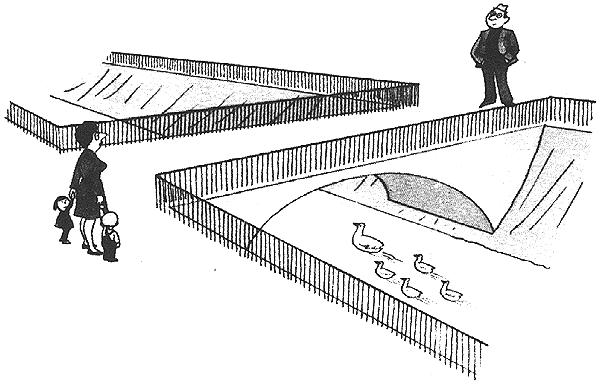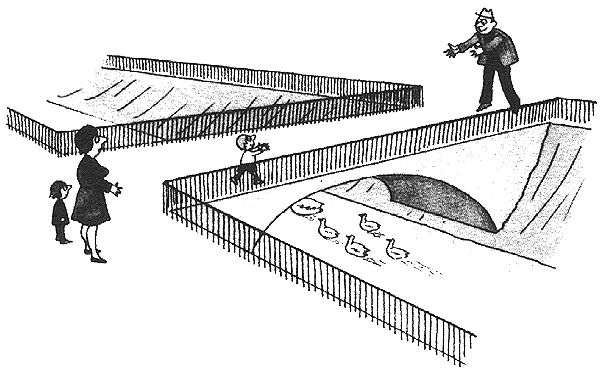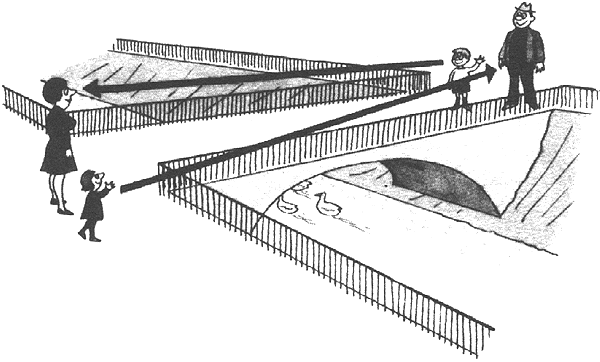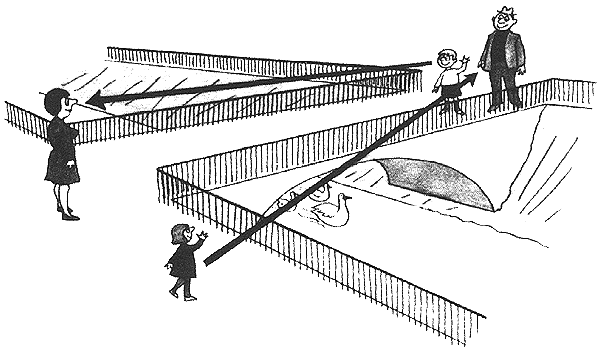




|
ENERGY
|
GAIN ENERGY
APPRENTICE
LEVEL1
|
THE
ENERGY BLOCKAGE REMOVAL
PROCESS
|
THE
KARMA CLEARING
PROCESS
APPRENTICE
LEVEL3
|
MASTERY
OF RELATIONSHIPS
TANTRA
APPRENTICE
LEVEL4
|
2005 AND 2006
|
| SEEDS OF LIGHT FREE INTERNET MAGAZINE. |
Second Chakra Issues
Between the age of 2 and 5 (but if left unresolved, the individual can continue this complex until resolved), the child feels an enormous sense of rejection, failure, jealousy, inferiority, and pain everytime their opposite gender parent is getting on with their same gender parent. The child feels horribly dejected because the rational goes "How can I possibly compete for the love and attention of the opposite gender parent when the same gender parent is so much bigger, better, and more able than I?"
From this rational, the child starts using the attention seeking strategies in an attempt to gain and secure the opposite gender parent's love.
From the side of the parents, the same gender parent may become jealous and annoyed by the attempts to "steal" their partners love and attention and thus may hurt the child - mentally, emotionally, and/or physically. The opposite gender parent may also become annoyed by the child's behaviour as it interferes with the parent's relationship, or this parent may encourage the child's attention seeking behaviour and use this situation to try to patch up or strengthen their relationship with their partner, using the child's behaviour as an interesting point of discussion, a bridge to reach their partner.
If the oedipus and electra complex is unresolved this complex can have several negative effects upon the family and all concerned.
Concerning the child as a developing individual, the deep hurt and confusion arising from this stage may be carried by the individual and projected onto the world and it's content. The developing individual may have integrated the attention seeking personalities into their character, completely unaware that they are using them every day to get that energy and attention that the inner child still believes to be love. The attention seeking strategies are not about genuine heart centred love, they are simply about attracting and securing the second chakra energy of other people.
Also, the child may grow up with a negative attitude to members of the same sex, because of the conflict and hurt concerning the father's behaviour in the oedipus stage, and also a negative attitude to members of the opposite sex because of the conflict and hurt concerning the mother's behaviours. They may also develop a narcissistic and deeply egocentric personality.
The parent may feel a deep confusion, guilt and regret due to their own behaviour, but be unable to understand why they behaved in that manner, because they do not understand the dynamics of the oedipus and electra complex.
If the energies of this situation remain unresolved, unchanged, if the family members are all still connected by the second chakra, then when the child enters puberty, their may be an increased possibility of incestous or at the least confusing and difficult relationships appearing in the family.
This oedipus and electra situation can be remedied in a number of ways.
The same gender parent showing love and interest in the child and helping them feel comfortable with being a member of their gender. This happens naturally when the heart chakra relationship is established.
The opposite gender parent taking an interest in the development of the child. This happens naturally when the heart chakra relationship is established, as jealousy and inappropriate second chakra connections are abandoned.
As mentioned earlier, if the individual cannot resolve this situation, then the unresolved issues will go and join other unresolved issues in the subconscious part of mind. As mentioned in the section concerning the subconscious mind, this subconscious material remains with us, effecting our behaviour at a deep level, until we can understand, heal, and resolve these issues. THE TECHNIQUES OF ENERGY ENHANCEMENT can help us to resolve and dissolve our disturbances in the subconscious mind - empty it's contents and get rid of it - so that we are not disturbed by it.
ENERGY ENHANCEMENT, THE OEDIPUS/ELECTRA COMPLEX, AND THE FINDINGS OF MODERN PSYCHOLOGY.
Here is a little section from "Families and How to Survive Them" (Skinner and Cleese) which fits in very nicely with what we have just been learning about. In terms of the chakras it's all about the integration of the first chakra (gender identity) and the second chakra (sexual identity). Things in brackets within the following passage are the SEEDS OF LIGHT editor's additions.
J: You said that at the start of the toddler phase, the children seem to believe they can be both sexes.
R: That's right. They still want everything their own way.
J: They're at the 'outsider' stage, so having to fit in to the male team or the female team will feel like a limitation, being cut down to size too much?
R: Yes. So they don't like surrendering to the idea of not having what the opposite sex has got. But of course they have to. The little girl has to give up the idea that she can ever have a penis and the little boy abandon the hope of ever having babies. But this is difficult at first.
J: So what helps the child do this?
R: The example of the parents is by far the most important influence.
J: Not what they say, of course, but how they behave.
R: That's the key thing. The child learns his sexual (and gender) identity by modelling himself on the parent of the same sex. But of course it's all much clearer if he can learn about the opposite sex at the same time, and compare them.
J: So he needs both parents to be able to do this properly.
R: Or at least two persons of the opposite sexes taking an active part in his life.
J: But what sort of models should he be getting?
R: Well, the research on what makes for health, happiness, and confidence in the gender roles suggests that the parents who help their children most in these respects show quite a bit of overlap in their gender roles - they share a good many similarities in what they are and what they do. But they also enjoy, and believe in, being different from each other in many respects as well.
J: So, a unisex arrangement between the parents is not good for the children.
R: It seems to lead to confusion in the child. The child need parents who share some activities and interests, and at the least some of his care. But the child also needs them to be different, and stand for different things, to respect and enjoy and admire each other's differences. You need two landmarks to get a bearing and find our where you are - and you need them to be a certain distance apart.
J: So you are saying that, for instance, the father makes his sons masculine by setting a very masculine model by the way he behaves?
R: No. It's very interesting that the evidence in fact suggests that fathers can't make their sons masculine simply by setting a very masculine model themselves. Nor by just putting pressure on them to behave in that way, either. In fact this can have the opposite effect! It's where the fathers are masculine and also loving, supportive, and engaged sometimes in the day-to-day care of their children that they produce sons and daughters both gender and sexually confident.
J: And the mothers?
R: The same story. If they're positive towards their own femininity, and their daughters' femininity, and also enjoy the masculinity of their husbands and their sons, they help their children to grow up with a happy acceptance of their gender and sexual identity.
J: It sounds as if the father's presence is vital at times, but that is isn't essential for him to be there as regularly as the mother.
R: It seems that's true, yes. The amount of time he's present is less important than the part he plays when he is there. But a lot of evidence shows that absence of the father in the early years often causes difficulty in developing a comfortable gender and sexual identity, especially in boys.
J: Because then the daughters will at least have a model of what they should develop into, even if they lack one for the opposite sex...but the boys won't have a model at all - except the sexual role they shouldn't follow?
R: Yes, but its' more than just that. There's another reason, which is that the development of the male is more complicated than the development of the female. It's as though something 'extra' has to happen for the boy, which doesn't have to happen for the girl.
J: As in the baby stage, where the extra Y-chromosome had to come in and 'switch the points' to produce a boy?
R: Yes, it's the psychological echo of that idea. Have a look at this diagram of what's happening up to the age of about one and a quarter. Because both male and female children start life inside the mother, and only she has breast that can feed them, all children normally start with an attachment to the mother - so I've put them on one side of a metaphorical river. The father, on the other side, is at first a more distant figure for the children. He's minding the shop, as it were, supporting the whole operation. So at this stage the children are mainly influenced by the mother and both gender children are modelling themselves on her.
J: So, if that situation continued, the boy wouldn't get the male influence he'd need.

R: Right. So to become psychologically male, he's got to 'cross the bridge' to be with his father.
J: Whereas the girl can stay where she is with her mother?
R: Yes. Of course she can always play around on the bridge, cross a little way, or even go quite far for a time and be a real tomboy. But everyone is expecting her to end up on the same bank she started on, with her mother, and that first intense attachment to her mother will be helping her to end up there.
J: So crossing the bridge is the 'something extra' the boy has to do?
R: Yes. And that of course means struggling against the powerful mother-tie (disconnecting from the mother's second chakra).
J: So what helps him to get free of that attachment and cross-over?
R: He needs two forces to break the primary tie:
He needs his mother to help him cope with moving away from her, because there's an emotional umbilical cord joining them, and if the mother won't let go of her end, it'll be very difficult for him to get free (an exact description of the second chakra connection).
He needs his father to love him and want him as a fellow male.

J: If he gets help from both of them, how long does the crossing take?
R: He needs to be across by about two and a half. Indeed, it's hard to reverse the process after about one and a half. But both sexes go on getting used to, and learning about, the roles they're expected to play on their sides of the river for some years after that.
J: So by about three and a half the boy is across on the father's side. That means he feels confident and happy about being a male.
R: So he turns round, faces his mum and starts flirting with her, just as the little girl, on the other side, is flirting with her Dad.

From now on up to the age of about five is the period I mentioned earlier, when the children have a romantic affair with the opposite-sex parent. (This is when the children are still attached to the second chakras of their parents, the whole family's evolution can be enhanced and improved by establishing the mature heart chakra connection at this time).
J: This is the Oedipus (and Electra) complex?
R: Yes, though there are several other aspects to that too. There's the jealousy of the same-sex parent, plus the fear that he or she will take revenge on the child for trying to steal their marriage partner.
J: Now during this time when the boy has been crossing the bridge, what's been the influence of the father on the girl?
R: Well the girl needs to separate from the mother too. So all the fatherly jobs we've talked about, laying down guidelines, firmness, encouraging exploration, and of course 'reclaiming' his wife, are helping the girl to become more independent of her mother. So although she stays on the same bank, she'll move apart from her, precisely because she has her own identity to discover.

Section from the book "Families and How to Survive Them" - Cleese and Skinner. Highly recommended.
So there we go! More evidence from Modern Psychology. I would like to add that the emotional and mental pain of not safely passing through this Oedipus and Electra Complex can seriously damage an individual's identity and holistic health. A child is devastated if they feel unloved, unwanted, and alienated from their family and don't feel comfortable with their gender and sexual identity, plus they have to deal with all the jealousy, hatred, and confusion of not understanding what is going on.
The damage can be healed later in life using healing practices like THE TECHNIQUES OF ENERGY ENHANCEMENT, but if we understand how important the Safe Passage Through The Oedipus and Electra Complex is for all concerned then we can avoid much unnecessary pain and confusion in the present and the future.
After reading all this, now is probably a very good time to start to work our way through the ENERGY ENHANCEMENT Self Healing Techniques until we are skilled and practiced enough to be able to disconnecting from our parents (or childrens) second chakra and establishing the appropriate heart chakra relationship.
May All Beings Understand and Safely Pass through this Oedipus and Electra Complex.
